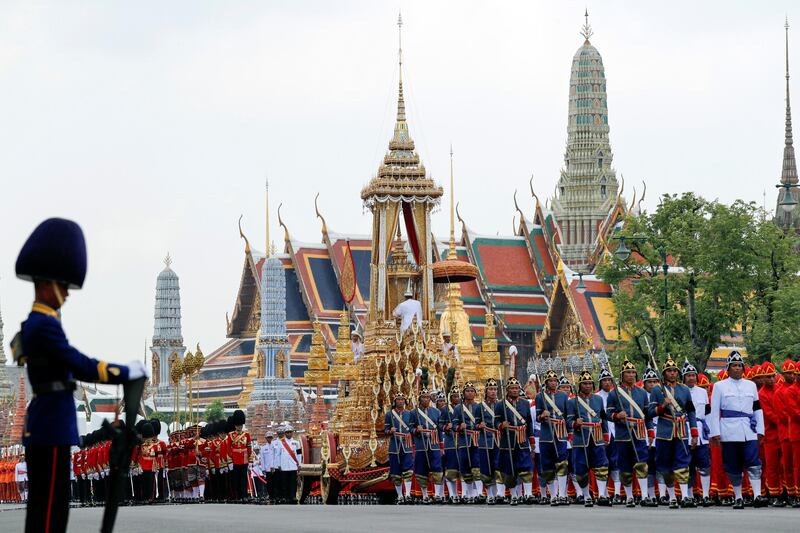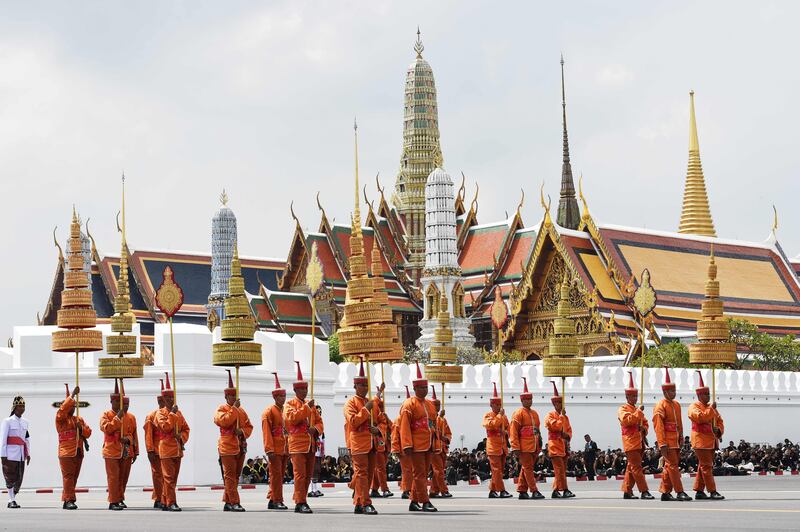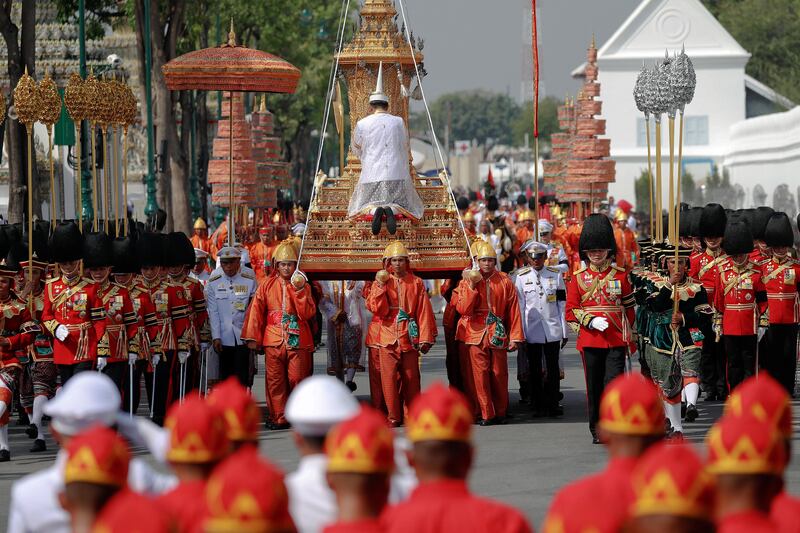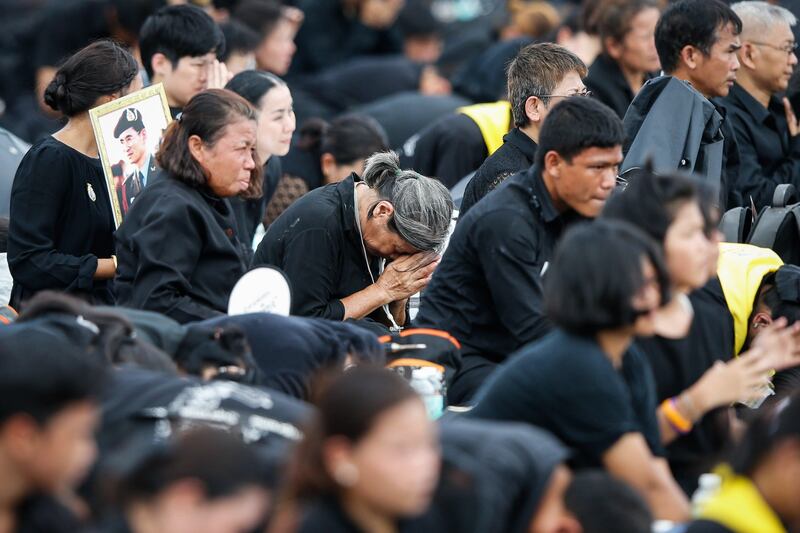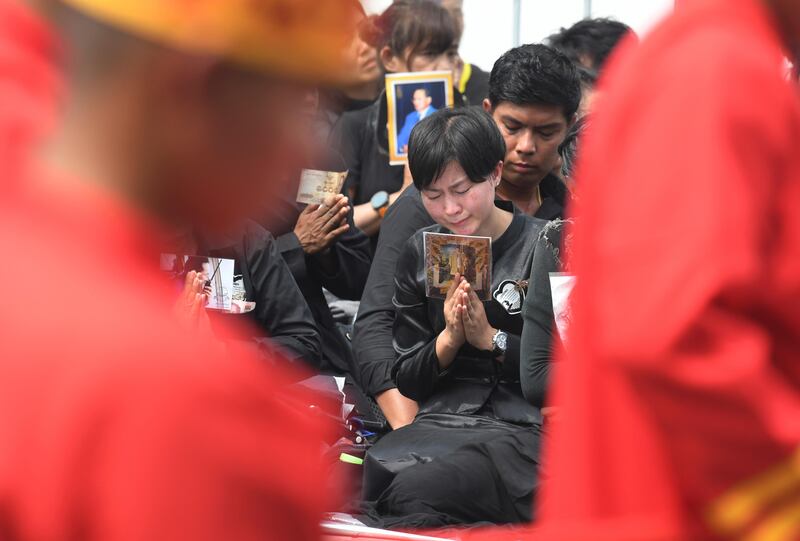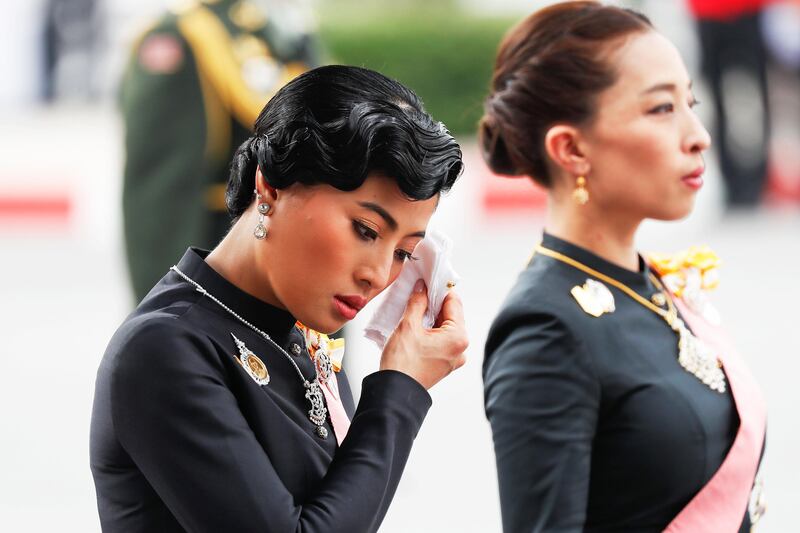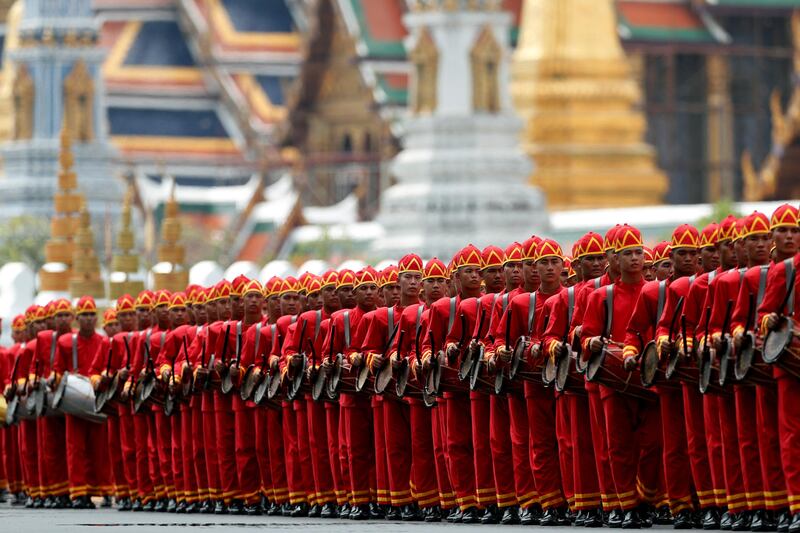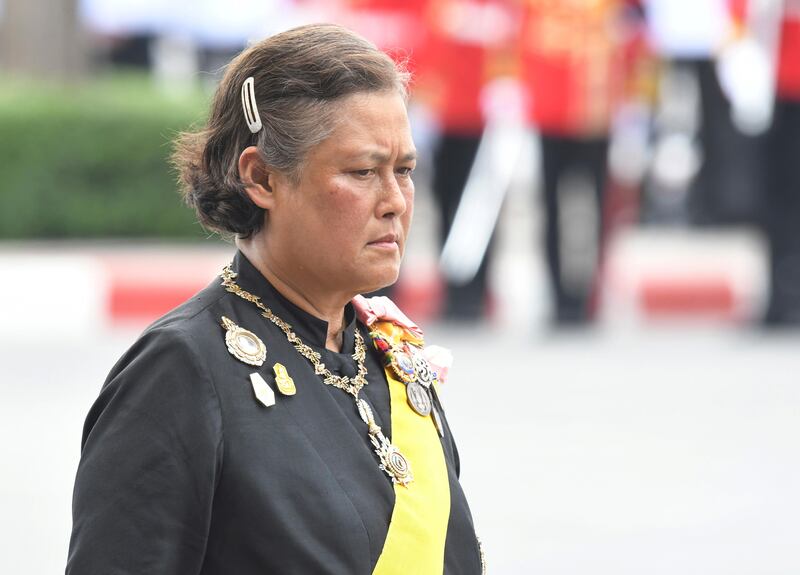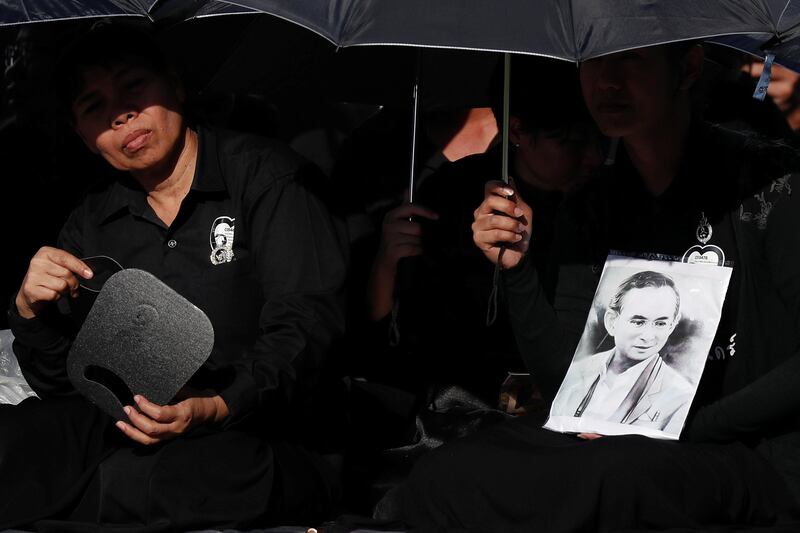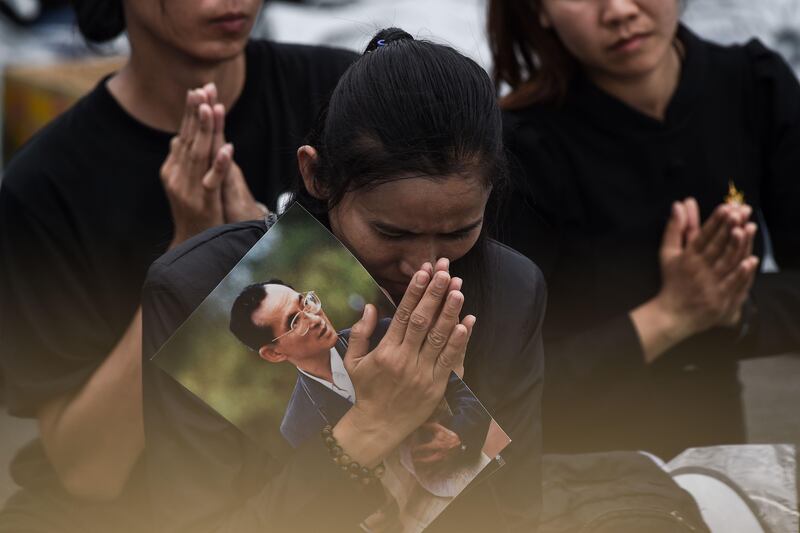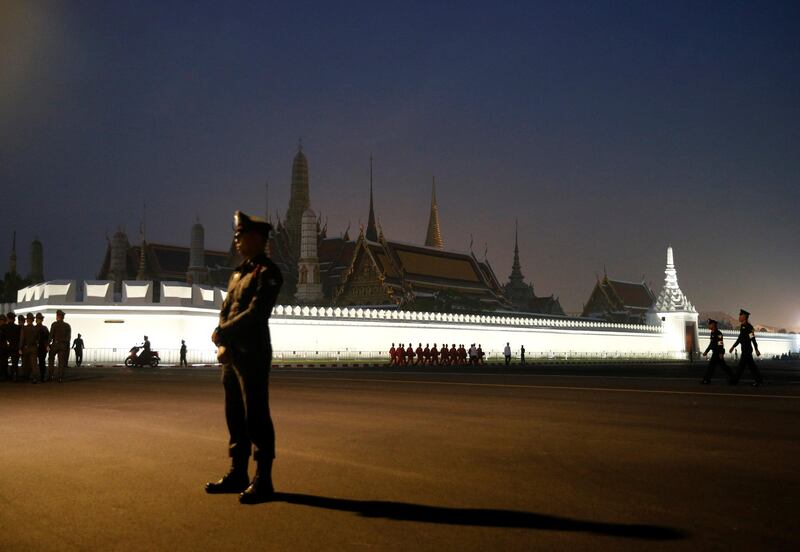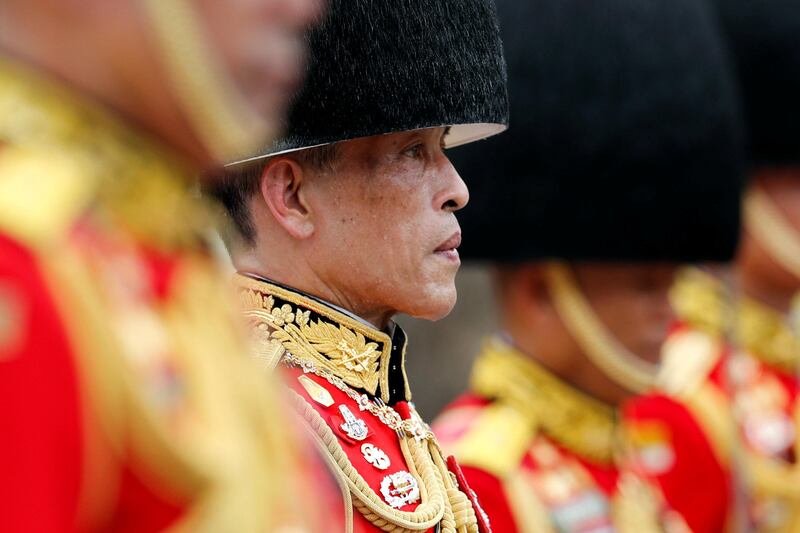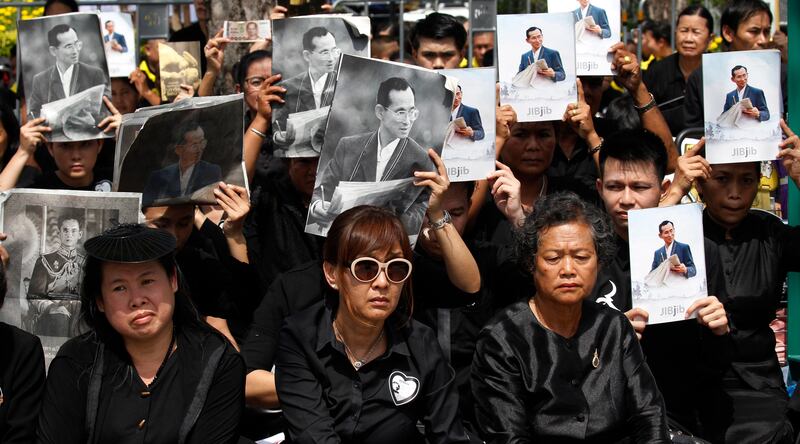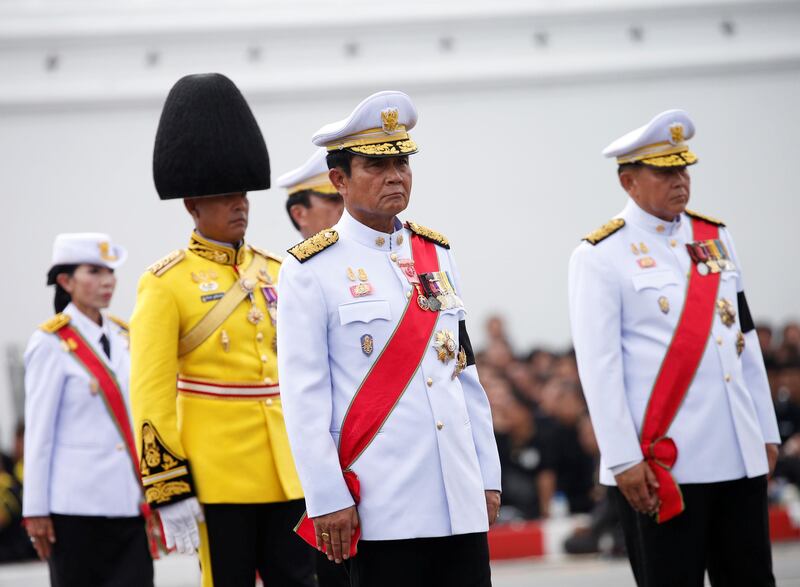Brahmin priests, drummers and soldiers in ceremonial uniforms led a solemn but colour-splashed procession through Bangkok's historic heart on Thursday as Thailand bade farewell to King Bhumibol Adulyadej whose death left the nation without its chief unifying figure.
Some 300,000 black-clad mourners packed the streets, some weeping and prostrating themselves on the ground as a golden chariot carrying the royal urn snaked through the city in blazing heat.
The golden spires of a spectacular US$90 million (Dh330.6m) cremation site, purpose built for the funeral, were bathed in sunshine as Bhumibol's son, King Maha Vajiralongkorn, joined Buddhist monks for the day of processions, pageantry and ritual.
Brahmin priests untied their ponytails in an outpouring of grief before the royal urn was moved to a gun carriage to circle the funeral pyre three times ahead of the evening cremation.
_______________
Read more:
[ Thailand prepares to say final goodbye to King Bhumibol, a year after his death ]
[ New era for Thai monarchy as prince Vajiralongkorn is proclaimed king ]
_______________
King Vajiralongkorn will light the golden pyre at 10pm local time as his father, Rama IX of the Chakri dynasty, is laid to rest.
The ceremony will be attended by a "Who's Who" of Thai power — royals, generals and establishment figures — as well as scores of foreign dignitaries.
The lavish event gives the public a chance to say a final goodbye to a monarch known as "father of the nation" who was crowned in 1950 and towered over decades of Thai history, before his death last October aged 88 seeded uncertainty in a country ruled by a divisive junta.
A brew of palace propaganda and a harsh lese-majesty law burnished the king's reputation throughout his reign.
But Bhumibol's intimate connection with his subjects was on ready display on Thursday.
"He was perfect. He helped the country and Thai people so much. Seventy million Thai people are united in their love for him," said 65-year-old Wacharadej Tangboonlabkun, who like most Thais knew no other monarch before Bhumibol's death.
The death of a figure of constancy in a politically combustible country has dipped the kingdom into uncertainty.
"There's no more a father who only gave to his children," said 47-year-old mourner Kingkan Kuntavee.
For much of Bhumibol's long reign, Thailand remained stuck on a carousel of violent protests, short-lived civilian governments and coups.
Political turmoil threw up a supply of junta leaders and prime ministers, but all lacked Bhumibol's moral capital with the Thai people.
He left behind one of the world's richest monarchies, one that stands at the apex of one of South-east Asia's most unequal societies.
Deference towards the monarchy — and the social elites it underpins — is a given in Thailand.
Ahead of the processions, palace aides shuffled on their knees in the presence of the new king, as monks in orange robes chanted Buddhist prayers.
The new king, who wore full military regalia as he joined the procession, will be crowned after his father is laid to rest.
He has yet to win the same affection among the Thai public as his father, whose image was carefully curated by palace PR, cementing a reputation as austere, benevolent and incorruptible despite the fast-changing times.
Thailand's royal defamation law shields the monarchy from criticism and scrutiny, carrying 15-year jail sentences for each charge.
